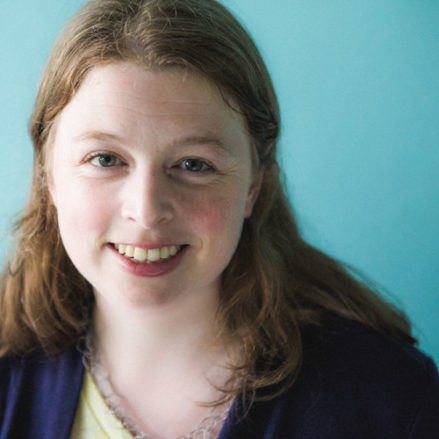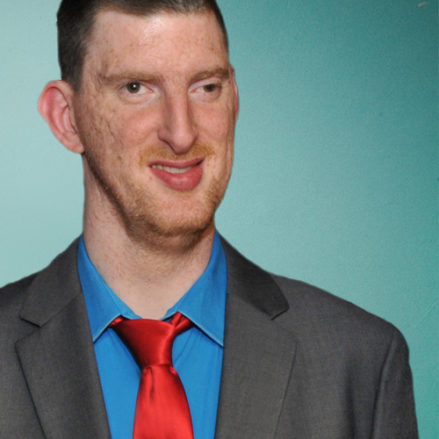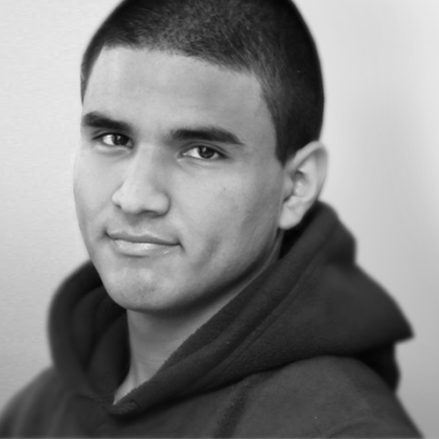Employed in a standard workshop, Linda* built small standardized tools. Throughout her days, Linda managed some behavioral challenges. She experienced occasional outbursts of emotion, causing disruptions in the workplace. To the supervisors and coaches at this agency, it wasn’t always clear what was causing Linda’s behavior. They knew something was getting in the way of her happiness and success.
Over the course of the past two years, the agency that employs Linda invested in rethinking their organizational philosophy. Taking steps to become a “person-centered” agency, Linda’s support team has seen some remarkable changes in her behavior.
Stepping Toward Person-Centered Planning
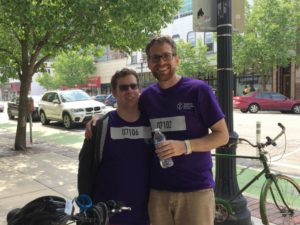 Two years ago, Independent Futures partnered with an agency on the west side of Chicago. One of our tutors, Rob Larson, initially trained our new partner on what it meant to provide person-centered service.
Two years ago, Independent Futures partnered with an agency on the west side of Chicago. One of our tutors, Rob Larson, initially trained our new partner on what it meant to provide person-centered service.
Exploring person-centered philosophy, Rob explained our Full Life Model and how we work alongside individuals with disabilities to achieve their hopes and dreams. For many years, the agency employed a majority of their participants in their on-site workshop but realized that job didn’t work for everybody.
With the Full Life Model and My Full Life online software, this agency began the hard work of altering their organizational culture. Planting the seed for innovation and creative thinking, Rob’s training already leads to big changes.
A New Kind of Support
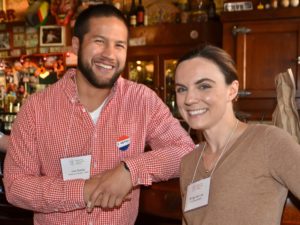 Jake Rohde, a training consultant and tutor, visited the agency late this summer. Whereas Rob taught the organization about our philosophy, now Jake would work to help implement the My Full Life tool.
Jake Rohde, a training consultant and tutor, visited the agency late this summer. Whereas Rob taught the organization about our philosophy, now Jake would work to help implement the My Full Life tool.
We have been a small nonprofit agency since 2002, while our new partner serves more than 300 individuals with disabilities. Founded in the mid-twentieth century, this partner’s leaders saw the change to person-centered philosophy as a difficult step. Jake explained, “Older agencies wonder, ‘How do you go from a structure where everyone is involved in one activity to something so individualized?’”
To do this, our partner agency has taken on meeting with and interviewing every adult they support about their desires. Moving past the fear that these changes brought, staff meets with each participant and asks, “What do you want to do?”
Recognizing the Impact of This Support
When the agency’s staff met with Linda, they offered her the opportunity to take some Montessori-style classes. Either instead of or in addition to the workshop, Linda could explore her interests and take a chance. She chose to take a couple of classes.
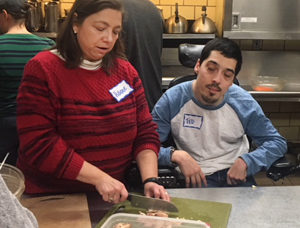 Since then, Linda’s behavior has changed dramatically. Like everyone does, she still may have difficult days. But at the end of most days, Linda visits her coaches and fellow participants with a calendar, marks off the day, and she eagerly tells each of them, “Today was a good day.”
Since then, Linda’s behavior has changed dramatically. Like everyone does, she still may have difficult days. But at the end of most days, Linda visits her coaches and fellow participants with a calendar, marks off the day, and she eagerly tells each of them, “Today was a good day.”
In moments like these, the agency’s staff realizes that our person-centered approach works. Being able to see the tangible, long-term results of person-centered planning demonstrates to them that the hard work of individualized plans is worth their time.
Building On Person-Centered Philosophy
In 2022, new federal regulations will require that all agencies serving adults with disabilities employ person-centered approaches. For many large agencies like our partner, they have a fear that this approach will be too time-consuming and too difficult to implement on large scales. We know that this is not the easiest path and asks a lot of direct support workers, but the positive impact of person-centered philosophy is great.
 Our partner’s next step is to continue interviewing their participants, building plans for each individual they serve. Jake will return to train the agency on using My Full Life as a goal-tracking and skill development tool.
Our partner’s next step is to continue interviewing their participants, building plans for each individual they serve. Jake will return to train the agency on using My Full Life as a goal-tracking and skill development tool.
When adults with disabilities are given opportunities to explore their interests and skills, they begin to feel more like themselves. Independent Futures is working to expand those opportunities so every individual with disabilities can say, “Today was a good day.”

 This blog was written by our community partner Michael Walther of Oak Wealth Advisors. As experts in special needs planning, the people at Oak Wealth Advisors can provide your family with the support you need to put your future in order.
This blog was written by our community partner Michael Walther of Oak Wealth Advisors. As experts in special needs planning, the people at Oak Wealth Advisors can provide your family with the support you need to put your future in order.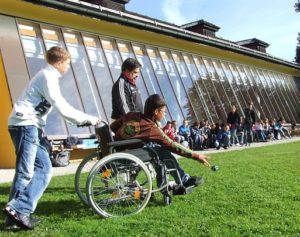 When most young adults finish school, they will make decisions about where they want to live, with whom they want to live, and what career they want to pursue. When the individual has special needs, the decisions are more complicated and usually require significant input from parents and others. Typically, the development of life skills and the focus on a future lifestyle are also developed during high school years. Many times, individuals with special needs age out of the school system without their independent life skills fully developed and some of their lifestyle questions unanswered.
When most young adults finish school, they will make decisions about where they want to live, with whom they want to live, and what career they want to pursue. When the individual has special needs, the decisions are more complicated and usually require significant input from parents and others. Typically, the development of life skills and the focus on a future lifestyle are also developed during high school years. Many times, individuals with special needs age out of the school system without their independent life skills fully developed and some of their lifestyle questions unanswered. There are two primary obstacles to successful special needs planning. Time and money. You have to accept that you cannot do everything or buy everything you would like for your loved one. However, successful planning will help you achieve more of your planning goals by making more effective use of your time and helping you stretch your dollars. In addition, the planning will supplement what the family can provide with as many government resources as possible. Effective special needs planning results in greater peace of mind for all family members.
There are two primary obstacles to successful special needs planning. Time and money. You have to accept that you cannot do everything or buy everything you would like for your loved one. However, successful planning will help you achieve more of your planning goals by making more effective use of your time and helping you stretch your dollars. In addition, the planning will supplement what the family can provide with as many government resources as possible. Effective special needs planning results in greater peace of mind for all family members.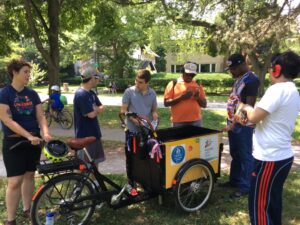 Let’s begin with an understanding of what Independent Futures considers ‘critical life skills.’ These are the skills that we need to live independently, like cooking, cleaning, and being safe.
Let’s begin with an understanding of what Independent Futures considers ‘critical life skills.’ These are the skills that we need to live independently, like cooking, cleaning, and being safe. 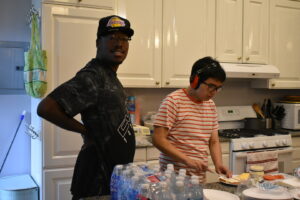 The Transition House travelers explored a lot of Evanston, including the Evanston Public Library South Branch, parks, Andy’s Custard, Dave’s Down to Earth Rock Shop, Evanston Police Department, and more.
The Transition House travelers explored a lot of Evanston, including the Evanston Public Library South Branch, parks, Andy’s Custard, Dave’s Down to Earth Rock Shop, Evanston Police Department, and more.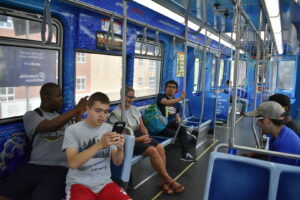 While exploring Evanston, the students were able to see what their own futures could hold. One of our community members, Lindsay, spoke with the group about what her life is like. Living independently in an apartment, Lindsay volunteers, has a job, goes out with close friends, and is engaged. Lindsay’s life is the type of full life that many of our community members have, and it’s a positive example of the life the Travel the Town students could have.
While exploring Evanston, the students were able to see what their own futures could hold. One of our community members, Lindsay, spoke with the group about what her life is like. Living independently in an apartment, Lindsay volunteers, has a job, goes out with close friends, and is engaged. Lindsay’s life is the type of full life that many of our community members have, and it’s a positive example of the life the Travel the Town students could have. The school year is almost here, and our Resource Partners at Oak Wealth Advisors, LLC, offers their advice for having school success. Take a look at our favorite tips below, and
The school year is almost here, and our Resource Partners at Oak Wealth Advisors, LLC, offers their advice for having school success. Take a look at our favorite tips below, and  IEPs, or Individualized Education Plans, are meant to be documents supporting the development of a student with disabilities. Required by law under IDEA (
IEPs, or Individualized Education Plans, are meant to be documents supporting the development of a student with disabilities. Required by law under IDEA (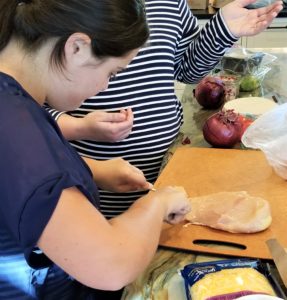 Teachers can start by interviewing the family about how past meetings went. What could have been better? What conversations went well? This interview is all about how you can help increase positivity throughout the process.
Teachers can start by interviewing the family about how past meetings went. What could have been better? What conversations went well? This interview is all about how you can help increase positivity throughout the process. 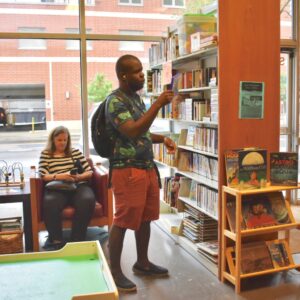 For this tip, teachers and family members can work together. Focus on the student. This may sound simple, but it is actually a much more involved process. Educators can focus on teaching students how to create their own measurable goals. Once the student understands
For this tip, teachers and family members can work together. Focus on the student. This may sound simple, but it is actually a much more involved process. Educators can focus on teaching students how to create their own measurable goals. Once the student understands 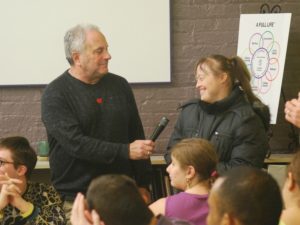 Happiness is one factor in many families’ decisions. The costs associated with care are another concern. According to
Happiness is one factor in many families’ decisions. The costs associated with care are another concern. According to 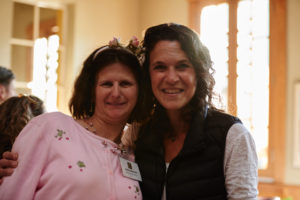 When direct service professionals focus on teaching life skills, such as cooking healthy meals and cleaning their home, an individual’s need for support in skill areas decreases. Learning life skills like these doesn’t only help individuals with disabilities maintain their spaces. It also helps them build community connections and employment skills.
When direct service professionals focus on teaching life skills, such as cooking healthy meals and cleaning their home, an individual’s need for support in skill areas decreases. Learning life skills like these doesn’t only help individuals with disabilities maintain their spaces. It also helps them build community connections and employment skills.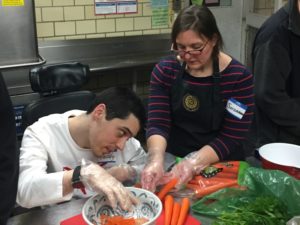 Home and community-based services funds have the potential to be used for a number of non-medical needs. Supports like employment help, remote monitoring equipment, and peer services aren’t traditionally covered. But with home and community-based services, access grows. Each of these supports can help an individual with disabilities achieve their dream of living in a community.
Home and community-based services funds have the potential to be used for a number of non-medical needs. Supports like employment help, remote monitoring equipment, and peer services aren’t traditionally covered. But with home and community-based services, access grows. Each of these supports can help an individual with disabilities achieve their dream of living in a community. With increasingly
With increasingly  Supported by life skills tutoring, individuals with disabilities can choose their goals, based on their hopes and dreams. With the support of their community – which can include family, neighbors, employers, as well as direct service professionals – people with disabilities’ quality of life can be improved immeasurably.
Supported by life skills tutoring, individuals with disabilities can choose their goals, based on their hopes and dreams. With the support of their community – which can include family, neighbors, employers, as well as direct service professionals – people with disabilities’ quality of life can be improved immeasurably. Using our Full Life Model™, transition teachers at Lake Zurich help their students set goals and identify obstacles. “I love the visual representation of all of the areas of a full life,” said Annamarie Bader, special education teacher. “I feel like this gives us the structure to help students identify the goals they will need to work on to have a full life. It helps us concentrate on each student’s hopes and dreams.”
Using our Full Life Model™, transition teachers at Lake Zurich help their students set goals and identify obstacles. “I love the visual representation of all of the areas of a full life,” said Annamarie Bader, special education teacher. “I feel like this gives us the structure to help students identify the goals they will need to work on to have a full life. It helps us concentrate on each student’s hopes and dreams.”  The Independent Futures’ curriculum,
The Independent Futures’ curriculum, 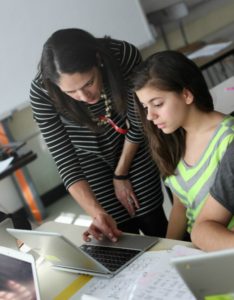 All of the components of My Full Life result in real improvements in students’ lives. Annamarie can use My Full Life to track IEP goals, conduct skill assessments, and see each component of full lives. And students can take this information with them into their future. “It’s helpful to have something for students to take with them after leaving the program at 22,” Annamarie explained.
All of the components of My Full Life result in real improvements in students’ lives. Annamarie can use My Full Life to track IEP goals, conduct skill assessments, and see each component of full lives. And students can take this information with them into their future. “It’s helpful to have something for students to take with them after leaving the program at 22,” Annamarie explained.  Last Thursday, Center for Independent Futures hosted an educational and engaging panel event at 1871 focusing on inclusive technology in Chicago. When developing our online learning management system, My Full Life, Independent Futures chose to focus on creating inclusive technology that would support adults with disabilities. In the last year, our consultants have met other technology professionals doing similar work. We were honored to bring these experts together for a conversation bringing accessibility and inclusion to the technology field.
Last Thursday, Center for Independent Futures hosted an educational and engaging panel event at 1871 focusing on inclusive technology in Chicago. When developing our online learning management system, My Full Life, Independent Futures chose to focus on creating inclusive technology that would support adults with disabilities. In the last year, our consultants have met other technology professionals doing similar work. We were honored to bring these experts together for a conversation bringing accessibility and inclusion to the technology field. 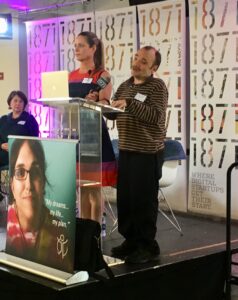 One of our community members, Jake, kickstarted the event by explaining how technology helps him in his daily life. Using screen readers, Jake is able to navigate the world and stay informed. His phone and computer both support him in living his full life. In fact, Jake used a screen reader to introduce our moderator, Roger Liew of
One of our community members, Jake, kickstarted the event by explaining how technology helps him in his daily life. Using screen readers, Jake is able to navigate the world and stay informed. His phone and computer both support him in living his full life. In fact, Jake used a screen reader to introduce our moderator, Roger Liew of 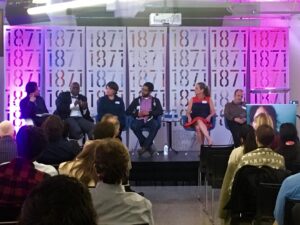 into the design process for developers. He noted, “Accessibility at big companies tends to start with compliance, but it has to move forward.” Cameron agreed, but she says even that isn’t enough. “People should start to look beyond big tech to companies like these that are developing with accessibility and inclusion in mind.”
into the design process for developers. He noted, “Accessibility at big companies tends to start with compliance, but it has to move forward.” Cameron agreed, but she says even that isn’t enough. “People should start to look beyond big tech to companies like these that are developing with accessibility and inclusion in mind.” 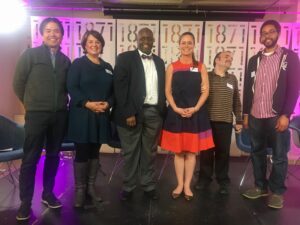 Richard expanded on this idea, explaining the biggest barrier for some people with disabilities has simply been “the technology catching up to they want to do. With technology, they can live their best full life.”
Richard expanded on this idea, explaining the biggest barrier for some people with disabilities has simply been “the technology catching up to they want to do. With technology, they can live their best full life.” 